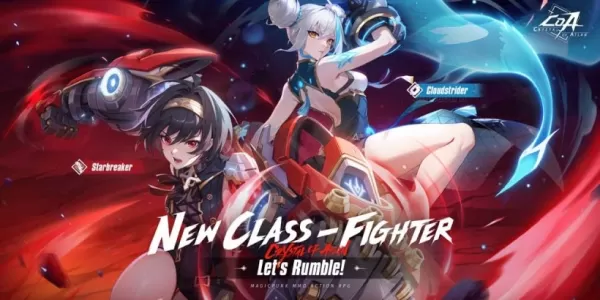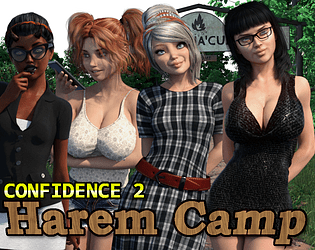Former PlayStation executive Shuhei Yoshida, who served as President of SIE Worldwide Studios for Sony Interactive Entertainment from 2008 to 2019, has openly expressed his reservations about Sony's controversial push into live service video games. In a recent interview with Kinda Funny Games, Yoshida revealed that Sony was fully aware of the risks associated with this strategic shift.
The timing of Yoshida's comments coincides with a challenging period for PlayStation's live service initiatives. While Arrowhead's Helldivers 2 achieved unprecedented success, selling 12 million copies in just 12 weeks and becoming the fastest-selling PlayStation Studios game of all time, other ventures have not fared as well. Sony's Concord, for instance, is considered one of the most significant flops in PlayStation's history. Launched amidst high hopes, Concord lasted only a couple of weeks before being taken offline due to dismal player engagement. Sony ultimately decided to terminate the game and shut down its developer, Firewalk Studios.
The financial impact of Concord's failure was substantial. According to a report by Kotaku, the initial development deal was around $200 million, which did not cover the full development costs, nor did it include the acquisition of the Concord IP rights or Firewalk Studios itself.
This setback followed the cancellation of Naughty Dog's The Last of Us multiplayer game, and this week, Sony reportedly canceled two more unannounced live service projects: a God of War title at Bluepoint and another at Bend Studio, the developers behind Days Gone.
Yoshida, who recently departed from Sony after a 31-year tenure, elaborated on his views regarding PlayStation's live service strategy during the interview. He noted that if he were in the position of Hermen Hulst, the current Sony Interactive Entertainment Studio Business Group CEO, he would have resisted the shift towards live service games. Yoshida explained, "For me, I was managing this budget, so I was responsible for allocating money to what kinds of games to make. If the company was considering [going] that way, it probably didn’t make sense to stop making another God of War or single-player game, and put all the money into the live service games."
However, Yoshida acknowledged that under Hulst's leadership, Sony provided additional resources to pursue both single-player and live service games simultaneously. He said, "However, what they did when I left and Hermen [Hulst] took over is the company gave us a lot more resources. I don’t think they told Hermen to stop making single-player games. [They said] ‘these games are great, keep doing that, and we’ll give you additional resources to work on these live service games and try it.’"
Yoshida admitted that Sony was aware of the risks involved, stating, "I’m sure they knew it was risky. The chance of a game becoming successful in this hugely competitive genre would be small. However, the company, knowing that risk, gave Hermen the resources and chance to try it. I think that’s the way they did it. In my mind, that’s great, and hopefully some games will become successful."
He highlighted the unexpected success of Helldivers 2, saying, "Luckily, Helldivers 2 did so well. Nobody expected that. So you can’t plan a success in this industry. That’s the most fun part of this business. I hope that this strategy will work in the end. If I was in Hermen’s position, probably I would’ve tried to resist that direction. Maybe that’s one of the reasons they removed me from the first-party!"
In a recent financial call, Sony president, COO, and CFO Hiroki Totoki reflected on the lessons learned from both the phenomenal success of Helldivers 2 and the failure of Concord. Totoki noted that Sony should have implemented development gates such as user testing and internal evaluations earlier in Concord's development process. He stated, "Currently we are still in the process of learning. Basically, with regards to new IP, of course you don’t know the result until you actually try it. So for our reflection, probably we need to have a lot of gates, including user testing or internal evaluation, and the timing of such gates, we need to bring them forward. We should have done those gates much earlier than we did."
Totoki also criticized Sony's "siloed organization" and Concord's unfortunate release window, which coincided with the launch of the highly successful Black Myth: Wukong on PS5 and PC. He suggested that better coordination across organizational boundaries and more strategic timing could prevent future cannibalization of sales. Totoki explained, "We have a siloed organization, so going beyond the boundaries of those organizations in terms of development and also sales, I think that could have been much smoother. And then going forward, in our own titles and in third-party titles, we do have many different windows. And we want to be able to select the right and optimal window so that we can deploy them on our own platform without cannibalisation, so that we can maximize our performance in terms of title launches."
During the same financial call, Sony senior vice president for finance and IR Sadahiko Hayakawa compared the launches of Helldivers 2 and Concord, emphasizing the lessons Sony intends to share across its studios. He stated, "We launched two live service games this year. Helldivers 2 was a huge hit, while Concord ended up being shut down. We gained a lot of experience and learned a lot from both. We intend to share the lessons learned from our successes and failures across our studios, including in the areas of title development management as well as the process of continually adding expanded content and scaling the service after its release so as to strengthen our development management system."
Hayakawa further outlined Sony's strategy moving forward, aiming to balance their portfolio between single-player games, which have a higher predictability of success due to established IP, and live service games that offer potential for significant growth despite the inherent risks. He said, "We intend to build on an optimum title portfolio during the current mid-range plan period that combines single-player games — which are our strengths and which have a higher predictability of becoming hits due to our proven IP — with live-service games that pursue upside while taking on a certain amount of risk upon release."
Looking ahead, Sony continues to develop several live service titles, including Bungie's Marathon, Guerrilla's Horizon Online, and Haven Studio's Fairgame$.








